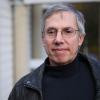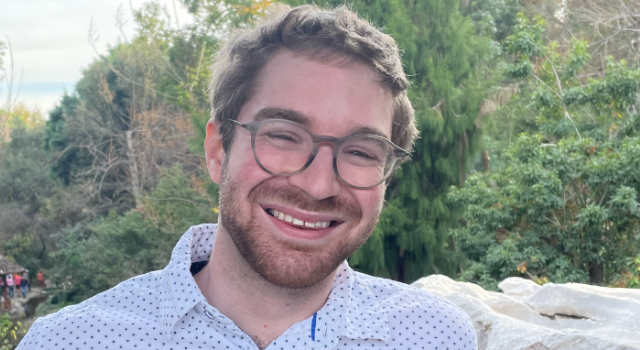
Jeffrey Wallen

Jeffrey Wallen's teaching interests include 19th- and 20th-century comparative literature (German, French, British), critical theory, Holocaust studies, modernism, Jewish studies, psychoanalysis, and philosophy. He has published widely on 19th- and 20th-century European literature; on biography and literary portraiture; on testimony, Holocaust literature, and Berlin Jewish history; and on debates about education. His book, Closed Encounters: Literary Politics and Public Culture was published by the University of Minnesota Press.
Wallen has taught as a visiting professor at the Free University Berlin and at the University of Toulouse, and has been the director of Hampshire's semester-long study abroad program.
Some of his most recent publications are "Beckett in Time of Crisis," "Totem and Taboo: The Perverse Writings of Ka-Tzetnik 135633," "The Lure of the Archive: The Atlas Projects of Walid Raad," "Migrant Visions: The Scheunenviertel and Boyle Heights, Los Angeles," “Twemlow’s Abyss,” "Narrative Tensions: The Eyewitness and the Archive,” "Falling Under an Evil Influence," "The Death and Discontents of Theory," and "Sociable Robots und das Posthumane." He is currently working on a study of the archive in contemporary thought and art.
Recent and Upcoming Courses
-
Translation is inherently an ethical and political act, involving inevitable misunderstandings and ambiguity. Things that can be said in one language cannot be neatly transferred into another. The translator works on the border of cultures as well as languages. This gap becomes even more difficult when translating across cultures that do not share the same basic concepts. The idea of translation as treachery is an old one. In this class we will read theoretical and practical works about translation, as well as fictional texts that foreground the task of the translator, such as R.F. Kuang's novel Babel. We will also read poems and short prose texts in multiple translations, and practice our own translations, individually and also in groups. Each student will undertake a translation project. It would be helpful to know a language other than English, but this is *not* a requirement for taking the course. There will be several guest visits by translators. Keywords:Literature, Languages, Border Crossing, Multilingualism
-
The 20th century was a period of great upheaval for Jews in all parts of Europe, as they faced transformative pressures of modernization, nationalism, revolution, war, and exile; the literature written by Jews in western, eastern, and central Europe is amazingly rich and diverse. The Jewishness of their writings will not be the central theme, but will serve as the thread to connect a stunning variety of imaginative texts written in a plethora of languages (French, German, Yiddish, Polish, Hungarian, Russian). We will read stories, poems, and short novels that range from the surreal and hallucinatory to the realistic depiction of everyday life. We will also see some films made from these works. Writers will probably include Else Lasker-Schuler, Franz Kafka, Bruno Schulz, Isaac Babel, Anna Seghers, Osip Mandelstam, Paul Celan, Vasily Grossman, Kadia Molodowsky, Georges Perec, Elias Canetti, Irene Nemerovsky, Joseph Roth, Imre Kertesz, Hannah Arendt, Jurek Becker, and Chava Rosenfarb. Keywords:Literature, Jewish Studies


